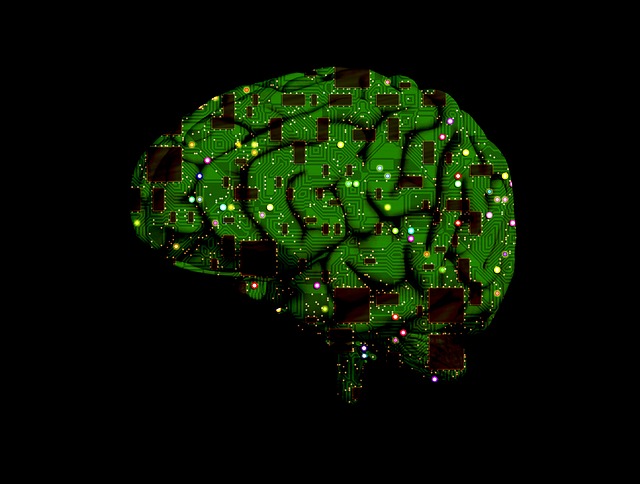Many people will remember movies like The Terminator and The Matrix; movies about machines that become self-aware and eventually turn against humanity. People who, like me, love science fiction will notice that a lot of movies and series with the same theme have come out in the last few years. In Ex Machina, a robot assistant turns against her human creator. The movie Her is about a man who falls in love with a digital assistant who eventually leaves him. Westworld shows the rebellion of robots in an amusement park.

author: Sheikh, Haroon
Apparently, artificial intelligence (English: artificial intelligence, short for AI, ed.) is hitting a nerve in society. Prominent figures such as Stephen Hawking and Elon Musk have issued serious warnings about the dangers of AI. Google CEO Sundar Pichai believes AI is more important than the invention of electricity. According to Russian President Vladimir Putin, the country that leads in AI will rule the world.
Accordingly, many countries have recently published an AI strategy. In 2017, Canada was the first, and more than twenty-five countries have since followed suit. In a Working Paper for the WRR, Bennie Mols analyzed several of those strategies. The Dutch government is also working on a "Strategic Action Plan on AI" that will be published soon.
Explosive growth
Why is there so much focus on AI right now? Artificial intelligence has been studied for as long as there have been computers, but in recent years the field has gained momentum. Three factors have been central to this.
The first is the growth in computing power that allows for much more complex analysis. For years, computing power has followed the so-called Moore's Law, which shows a doubling every two years. The second factor is explosive growth in the amount of data. We have all contributed to this in recent years by posting messages, photos, preferences and payments on the Internet. In doing so, we ourselves provided the fuel for smart algorithms. Finally, there have been important scientific breakthroughs in the area of deep learning. This is an area within AI that allows algorithms to recognize patterns in images or voice, for example, by using different layers. Together, these three factors have given a huge boost to the development of AI.
The applications are now all around us. Smart algorithms give us all kinds of recommendations based on our previous behavior in so-called recommender systems. Think of your timelineon Facebook, recommended books on Amazon or movies on Netflix. Another area within AI is machine vision that can recognize images of cats, for example. AI applications of natural language processing are personal assistants like Siri and Alexa or online translation machines.
All these applications raise important issues. How do non-transparent recommendations affect human autonomy? What happens to public space when we are all approached in different ways depending on our personal profiles?
Face recognition
Let's look at a domain within AI that is currently the subject of controversy. One application of machine vision mentioned above is facial recognition, the identification of individuals based on unique features in the face. It is widely used in countries such as China and Russia. In the West, however, companies and governments are also using it in shopping malls, stadiums, airports and simply on the streets. The potential for surveillance has been greatly increased by facial recognition software, and citizens' privacy is at stake with it. Moreover, it has a centralizing effect; in a simple and inexpensive way, governments or companies can find out a lot of sensitive information about ordinary citizens.
In addition, other dangers lurk in this technology. Facial recognition is dual-use, meaning it can also be used in military applications to eliminate terror suspects, for example. Another application of it is affect recognition, which reads emotions from faces. There are cases of schools using it to see if students are paying attention in class or stores using it to identify potential customers. This is done while there is no scientific basis for it; people express their emotions in different ways, especially in different cultures.
Fears
AI brings immense possibilities, but its unlimited and uncontrolled use brings all sorts of dangers to public values. The AI expert Pedro Domingos put it nicely. According to him, we fear that AI will become very smart and take over the world, when in reality AI is not that smart at all and has already taken over the world. We focus too much on fears about possible future scenarios about self-aware machines, because all kinds of movies and series portray that to us. As a result, we ask the wrong questions. It blinds us to all kinds of applications that are already around us and to which we should pay much more attention.
Facial recognition is an example of this. Some of its risks are named in Minister Dekker's recent letter on horizontal privacy. The American city of San Francisco has even completely banned the use of facial recognition. As far as I'm concerned, we should have more discussion about these kinds of technologies. Public values will be compromised if we allow facial recognition unregulated. Indeed, in these areas, AI has long since ceased to be science fiction.
source: Platform O

